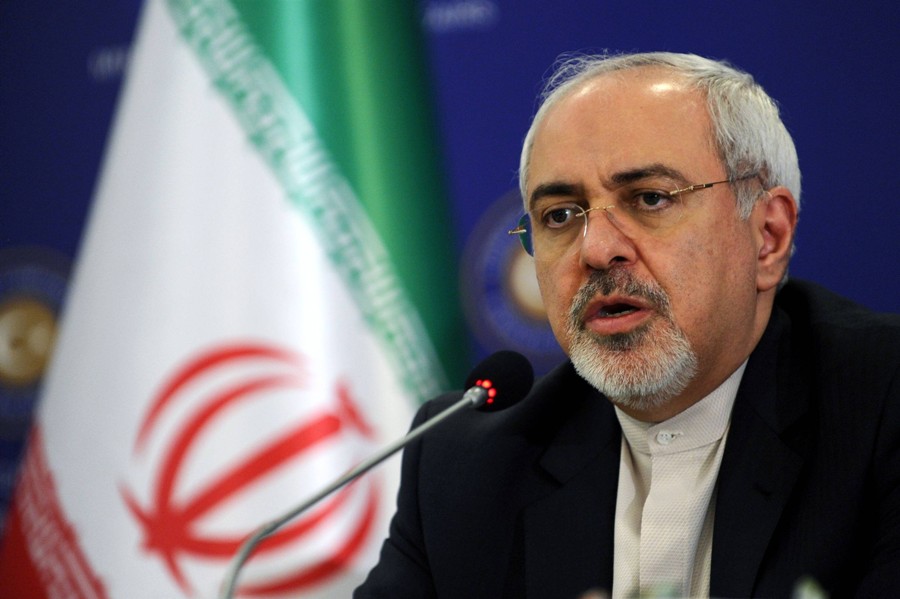(AhlulBayt News Agency) - Very little is off limits when it comes to the world of politics, particularly when the category of politicians we are talking about come from Saudi Arabia. The caliphate’s propaganda machine, fed by “tainted petrodollars,” has been slinging mud at its rivals no matter if they are right.
More than anything else, Riyadh has seen, and continues to do so, no irony in branding as preachers of hate, terrorism, and extremism its rivals in the beleaguered Middle East.
Over the past five years, the House of Saud has been pointing the finger of suspicion at Iran, and only Iran, for the slaughtering in Syria, Iraq and Yemen as well as for skirmishes in Lebanon and Bahrain.
In a most recent tirade and as a retort to an article by Iranian Foreign Minister Mohammad Javad Zarif in the New York Times titled “Let Us Rid the World of Wahhabism,” Asharq Al-Awsat Editor-in-Chief Salman al-Dossary has accused the top Iranian diplomat of calculatingly dismissing what he called “hard facts.”
Mr. al-Dossary hurls charges at Iran for supporting terrorism, including its backing for Hezbollah as a movement against the manic expansionism of the Israeli regime.
As a reality check against the claim and to give one piece of hard fact as favored by Mr. al-Dossary, I would like to bring him up to speed on a 30-minute address delivered by Prince Turki al-Faisal, Saudi Arabia’s former spy chief, to a gathering of the Mujahedin Khalq Organization (MKO) in Paris back in July.
“The Muslim world supports you (MKO) both in heart and Soul,” al-Faisal told the gathering while wishing for the fall of Iran.
Al-Faisal was making the comments in his capacity as chairman of the board of the King Faisal Center for Research and Islamic Studies.
Just some more pieces of hard fact!
The MKO carried out a number of attacks against U.S. soldiers stationed in Iran before the 1979 revolution and was designated as a terrorist group by the U.S. and the European Union for many years.
After the 1979 Islamic Revolution, the group resorted to bombings and assassinations in Iran, during which upwards of 17,000 Iranians lost their lives and thousands more injured.
Hossein Mousavian, former Iranian ambassador to Germany, has quoted an Iranian official as saying that Riyadh had increased its financial support of the terrorist group up to 800 percent over the past two years!
The Saudis, as represented by the likes of al-Dossary, also have been playing the “Iran card” as Mr. Zarif said in his article, trying to chain Iran with the 9/11 attacks without bringing cogent evidence.
Let us not forget it was as recent as September 9 that the U.S. House of Representatives approved a bill to allow families of the 9/11 attacks to file a case against Saudi Arabia for any role in the attacks, according to the New York Times.
It is a disgrace to the Saudi caliphate that 15 out of the 19 hijackers in the 9/11 attacks were Saudi nationals.
I wonder if the long-classified 29 pages of the official congressional report on the 9/11 were on the ties of Iranian government to the9/11 hijackers.
Yet, nobody knows how far the Saudis lavished on their petrodollars to expurgate and distort facts reported in the catalog in a bid to make it more Saudi-friendly, so to speak.
Having said that, Riyadh and its “public relations firms,” including Asharq Al-Awsat, have been blaming Iran for financing terrorism and extremism.
Just last year Germany’s vice-chancellor Sigmar Gabriel, in an interview with German newspaper Bild am Sonntag openly revealed that Saudi Arabia was financing terrorists in the West through its Wahhabi madrasas and mosques.
“Wahhabi mosques all over the world are financed by Saudi Arabia,” Gabriel said, adding, “Many Islamists who are a threat to public safety come from these communities in Germany.”
It was these Wahhabi links that Mr. Zarif brought to the attention of the world in his New York Times article, a point referred to by American scholar Noam Chomsky, as well.
“An extremist version of Saudi extremism is the doctrine that was picked up by ISIS. So it grew ideologically out of the most extremist form of Islam, the Saudi version, and the conflicts that were engendered by the U.S. sledgehammer that smashed up Iraq and has now spread everywhere,” Chomsky said in an interview in February 2015.
“Saudi Arabia not only provides the ideological core that led to the ISIS radical extremism, but it also funds them,” the American scholar added.
The list of hard facts about the disgraceful performance of the Saudi dynasty can go on.
Riyadh is cracking down on the pro-democratic movement in Bahrain. It also continues to target civilians in Yemen and arm terrorist groups, including al-Nusra Front (now called Jabhat Fatah al-Sham) in Syria.
In Iraq, the situation is no better. In August, Iraq asked Saudi Arabia to replace its ambassador in Baghdad over unfounded charges by the ambassador that Iran was fueling sectarian conflicts in Iraq.
I would like to join Mr. Zarif inviting the “Saudi rulers to put aside the rhetoric of blame and fear, and join hands with the rest of the community of nations to eliminate the scourge of terrorism and violence that threatens us all.”
We do not wish a world without the Saudis, but strongly believe a different Saudi Arabia will make the world in general and the Middle East in particular a more beautiful place to live in.
/129
source : Tehran Times
Sunday
18 September 2016
6:35:22 AM
779821

We do not wish a world without the Saudis, but strongly believe a different Saudi Arabia will make the world in general and the Middle East in particular a more beautiful place to live in.
